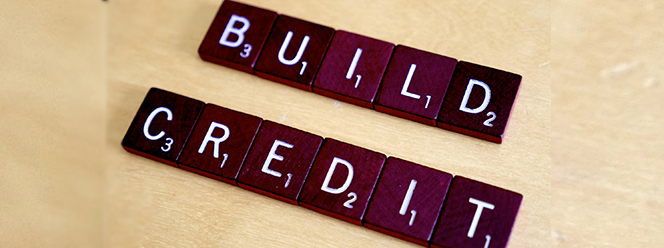
by Tara Joyce | Jul 21, 2017 | Featured, Pay What It's Worth Pricing

Money is a symbol of two basic principles that underlie every process in the physical world: the principle of value, and the principle of giving and receiving. Whether it is our money, our labor, our commitment, or our care—we estimate the value of something by what we are willing to give for it and receive from it. This respect and attention we give to what we value, and how we value it, is a reflection of our self-worth. The lack of respect we give to the things that matter to us—including our bodies and the worth of our labor—is also a reflection of our self-worth. This unconscious lack of respect is our shadow energy around money and self-worth, and commonly manifests itself as the emotions of fear and greed, which are closely tied to our modern relationship with money and wealth. The corruption, materialism, and consumerism of modern society, and the widely disproportionate difference in wealth between the people at the top of the income ladder and the rest of society are all manifestations of our collective money shadow.
Unaware of our personal shadow energy, we have “bought into” the idea that if we can afford an item, it must measure and reflect the inherent value we hold—and if another cannot, they must be worth less and hold less value than we do. Disconnected from our own and others’ true sense of worth, we are losing our intuitive sense of how much to give for the value we receive. Instead, we are building ourselves up with material accumulations, as though they alone are a reflection of our worth and deservedness. What our money shadow does not recognize however is that money is only one type of currency, one type of wealth, and it is not a true measure of our self-worth. Perceiving money as the only and/or most important measure of wealth and self-worth can only leave us feeling unsatisfied. There will always be someone with more money, and thus there will always be someone for us to feel less than. While several psychological studies have revealed that although material security definitely increases our happiness, beyond a certain income level this correlation between income and happiness drops significantly. One reason for this is that a major ingredient of happiness is a sense of sufficiency—of having enough. In a culture where we are trained to consume and to compete and compare, many of us have lost the ability to recognize this feeling of satisfaction. We find ourselves feeling we do not have enough, that we are in lack, and these feelings further trigger our shadow emotions of fear and greed. We find ourselves feeling that we are not enough.
While we may not objectively live in poverty, in essence, our culture lives with a poverty consciousness. Attached to material goods as a symbol of our self-worth, we are now better equipped to feel in lack—to feel we do not have enough and are not enough—than to feel satisfied. This lack of satisfaction, this poverty consciousness, is extremely painful and often manifests in mental habits like criticism, judgment, envy, and anger. Unaware of the pain we are in, and unable to recognize a feeling of satisfaction within our self, we unconsciously invest in scarcity—we acquire for the sake of having more and more, further losing our ability to access our inner feeling of “enough.” Lost in our greed, we endlessly chase the ever-receding prize that is our happiness.
It is not easy to feel whole and satisfied in a collective culture that sells you on your insufficiency. It requires cultivating a conscious awareness of how you behave and how you think. It involves actively looking at your attitudes and imbalances around money, authority, and health. There is a balance to be found between greed and generosity, between trusting in abundance and buying into scarcity. A healthy relationship with physical wealth can be cultivated within yourself.
photo credit: Jimi Filipovski

by Tara Joyce | May 13, 2016 | Innerpreneurship, Self/Business Growth

A plant needs space, and a seed, as its container to grow. The seed is a boundary from which the plant grows, as is the space that it takes root and grows in.
To ensure our plants—the ones we choose to nurture and grow—have the space they need to grow free from invasive intruders, we weed our landscape.
Our relationships are no different. They are a landscape that needs our attention.
Weeding is necessary, as is protecting our space from the things we do not need, nor want, within it.
Defining our boundaries in this way is not as a fear-based act of protection, but rather a necessary and abundance-ensuring act that supports the growth of what we care about nurturing.
Everything living needs boundaries to build strong foundations from. What grows from us is no different.
Our boundaries nurture what we care to come to fruition.
photo credit: Enid Martindale

by Tara Joyce | Mar 7, 2016 | My Journey | What's On My Mind, Self/Business Growth

You are well equipped to face whatever challenges are placed in your path. In all ways.
Whether you see them or not, you have been provided with an abundance of resources to draw upon.
Whatever your objective, if you can trust that you have the resources to handle it, you’ll find yourself responding capably when challenges present themselves. Trusting your resilience, you’ll find yourself naturally employing your resources effectively and efficiently.
Your challenges, whatever their nature, are here to support you in proving to yourself that you are as capable and skilled as you desire to be. In immersing yourself in these taxing situations, you empower yourself to test your grit—and you expose your true resilience.
The challenging situations causing you pain compel you to utilize all of your strengths and resources, just to stay afloat. What’s beautiful is in bravely and competently facing these challenges, your confidence increases and you discover within you the will and the ability to accomplish almost anything. Now, you truly understand what you’re capable of.
photo credit: Jeremy Thomas

by Tara Joyce | Feb 24, 2016 | Cultural Creativity

Psychology is to money what an engine is to a car. Your motives — what drives you — determines your experience with it.
Increasing the quality of your thoughts, your wealth increases. In valuing yourself more, you naturally exchange this greater sense of worth with the world around you.
In building credit with yourself, you build credit in the world.
But in order to increase the quality of your thoughts around money, in order to build your credit, you first need to do the work. Your work with money, and with worth. To fully recognize and grow your credit, you need to identify the outer work and the inner work you need.
Your Outer Work with Money Includes…
- Marketing Yourself – Identifying & communicating the value you offer
- Creating Opportunities for Higher Pay – Growing your wealth
- Managing Your Money – Caring for your wealth
Your Inner Work with Money Includes…
- Transforming Your Thoughts, Feelings, Beliefs, Attitudes and Decisions About Yourself and Money – Connecting with the value you offer and the abundance of wealth you possess
In exploring both aspects of your experience with money and yourself, you’re doing the work you need to build the credit you inherently hold, and you’re supporting yourself in realizing the abundant life you deserve. Working on the quality of your thoughts, you improve the quality of your experience.
photo credit: Simon Cunningham

by Tara Joyce | Jan 8, 2016 | Cultural Creativity, My Journey | What's On My Mind, Self/Business Growth

There’s a problem with abundance. In living with it—and amongst it—there’s a risk I will stop seeing it as a thing of beauty—and the gift that it is.
The very real risk with abundance is I’ll take it for granted—either by expecting it to always be there, and/or by not acknowledging its presence fully in my life. Either approach spoils my appreciation of it.
The very real gift of abundance is in learning to receive it fully, it stretches me. For to fully honour it, I must acknowledge how fortunate I am, by remaining thankful for my life amongst the pain of it. Being present to this gratitude, my abundance can not be spoiled. I will not become blind to it’s presence.
My world is abundant for a reason. It is here to expand me. For it to do anything else, like spoil me, is my choice alone. Money (and other forms of wealth) simply do not have that power over me (or anyone else), and never have. It is I that gives my power to them.
I always have a choice in how I acknowledge the abundance of my world. In the end, what truly grows the wealth of my world, is my desire to become more skillfully aware of how I choose to receive abundance—and how I choose to give it.
photo credit: Craig Sunter










